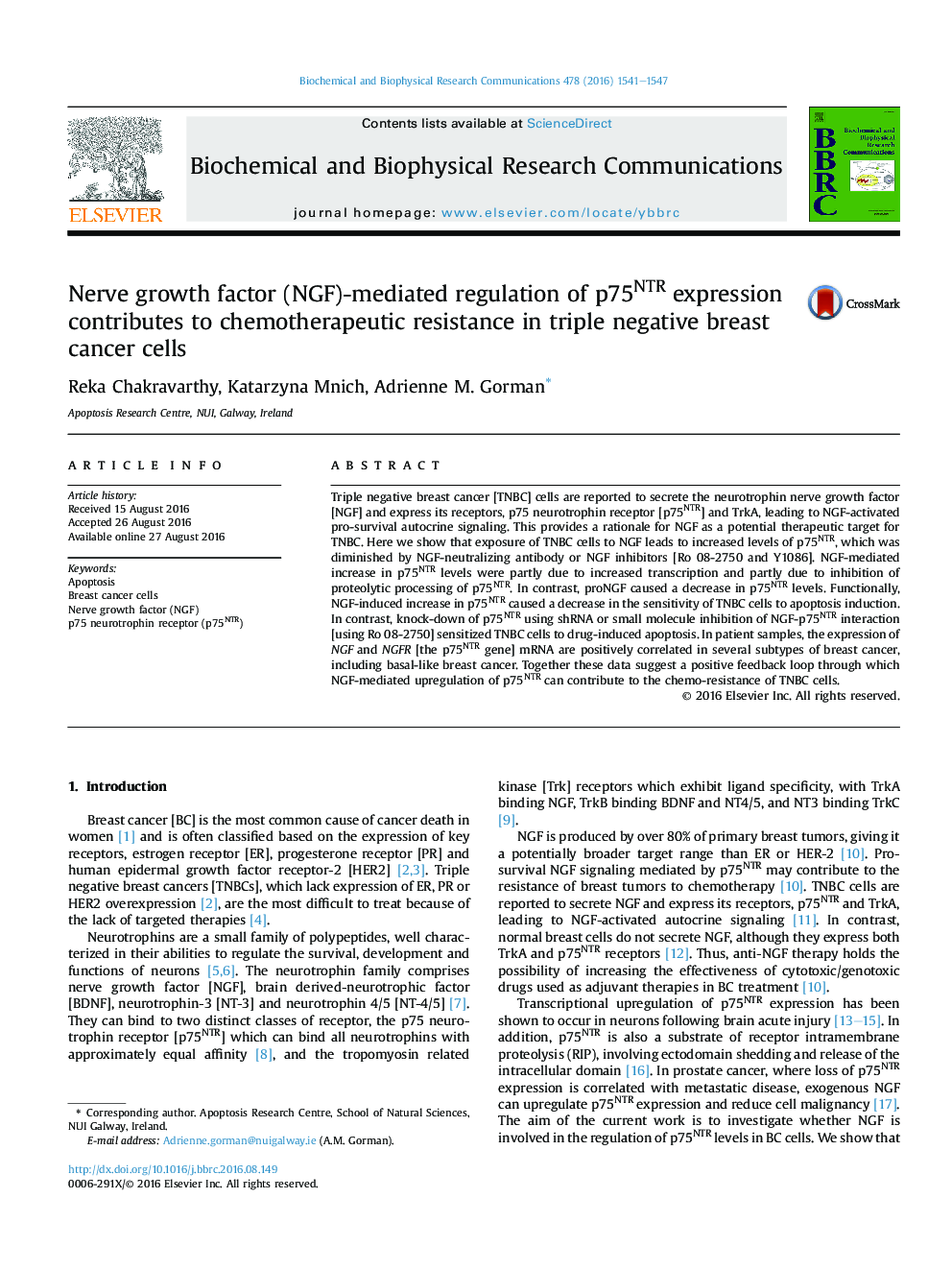| Article ID | Journal | Published Year | Pages | File Type |
|---|---|---|---|---|
| 5506620 | Biochemical and Biophysical Research Communications | 2016 | 7 Pages |
Abstract
Triple negative breast cancer [TNBC] cells are reported to secrete the neurotrophin nerve growth factor [NGF] and express its receptors, p75 neurotrophin receptor [p75NTR] and TrkA, leading to NGF-activated pro-survival autocrine signaling. This provides a rationale for NGF as a potential therapeutic target for TNBC. Here we show that exposure of TNBC cells to NGF leads to increased levels of p75NTR, which was diminished by NGF-neutralizing antibody or NGF inhibitors [Ro 08-2750 and Y1086]. NGF-mediated increase in p75NTR levels were partly due to increased transcription and partly due to inhibition of proteolytic processing of p75NTR. In contrast, proNGF caused a decrease in p75NTR levels. Functionally, NGF-induced increase in p75NTR caused a decrease in the sensitivity of TNBC cells to apoptosis induction. In contrast, knock-down of p75NTR using shRNA or small molecule inhibition of NGF-p75NTR interaction [using Ro 08-2750] sensitized TNBC cells to drug-induced apoptosis. In patient samples, the expression of NGF and NGFR [the p75NTR gene] mRNA are positively correlated in several subtypes of breast cancer, including basal-like breast cancer. Together these data suggest a positive feedback loop through which NGF-mediated upregulation of p75NTR can contribute to the chemo-resistance of TNBC cells.
Related Topics
Life Sciences
Biochemistry, Genetics and Molecular Biology
Biochemistry
Authors
Reka Chakravarthy, Katarzyna Mnich, Adrienne M. Gorman,
